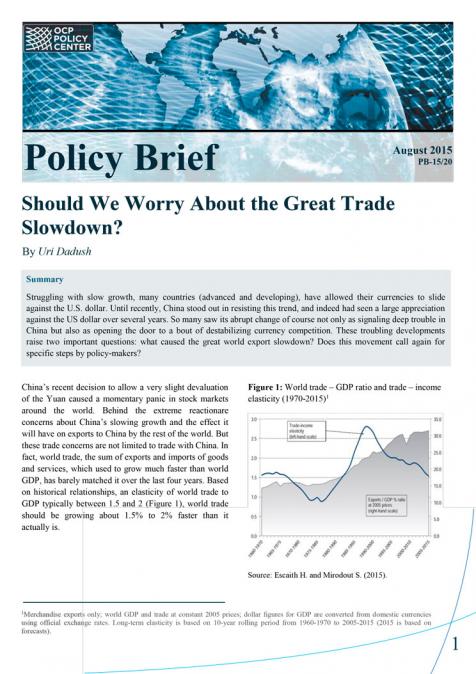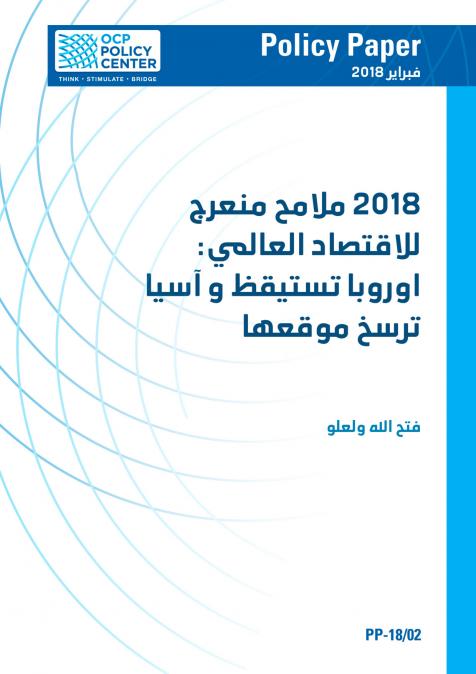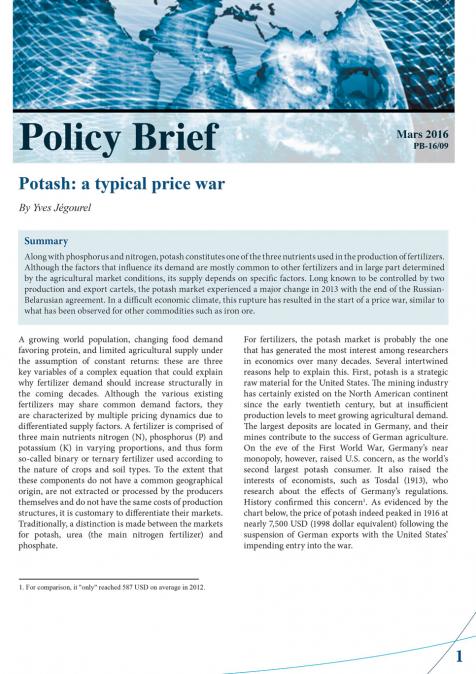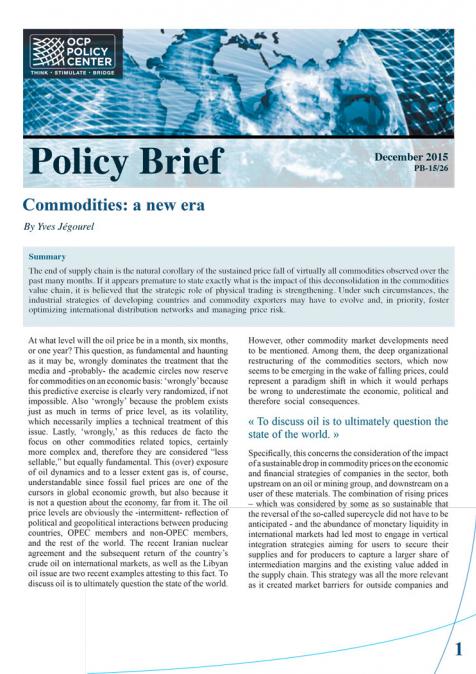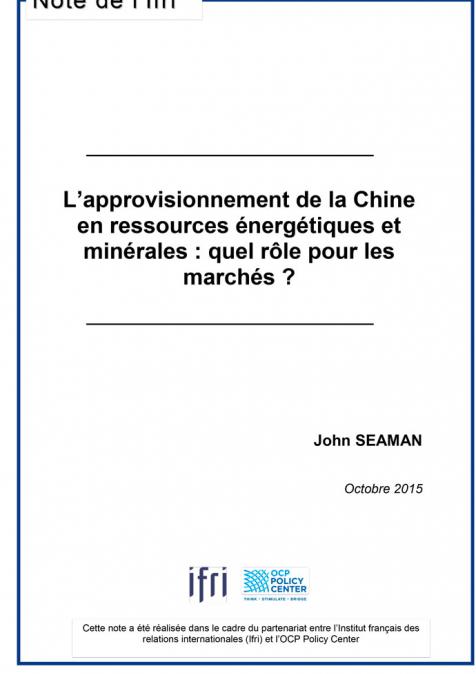Publications /
Policy Brief
Policy Brief
Should we worry about the Great Trade Slowdown?
August 25, 2015
Struggling with slow growth, many countries (advanced and developing), have allowed their currencies to slide against the U.S. dollar. Until recently, China stood out in resisting this trend, and indeed had seen a large appreciation against the US dollar over several years. So many saw its abrupt change of course not only as signaling deep trouble in China but also as opening the door to a bout of destabilizing currency competition. These troubling developments raise two important questions: what caused the great world export slowdown? Does this movement call again for specific steps by policy-makers?

